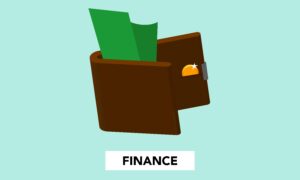Data is often referred to as the new oil. Like crude oil, raw data has little value until it is processed, analyzed, and utilized. Data monetization, or the process of turning data into financial gain, is emerging as a lucrative opportunity for individuals and businesses alike. For personal finance enthusiasts, leveraging this trend could pave the way for additional income streams.
Understanding Data Monetization
Data monetization involves the transformation of information into economic value. Organizations collect, analyze, and sell data to improve decision-making, enhance customer experiences, and increase profits. While businesses have been doing this for years, individuals now have opportunities to monetize their data as well.
Types of Data Monetization
- Direct Monetization: Selling data to third parties or using it to generate direct revenue. For example, some platforms pay users for their browsing data.
- Indirect Monetization: Using data insights to improve services, build better products, or optimize operations, indirectly boosting income potential.
- By understanding these types, individuals can identify where their personal data fits into the broader monetization terrain.
Why Data Is Valuable
The value of data lies in its ability to inform decisions. Businesses pay top dollar for insights that help them predict consumer behavior, optimize marketing strategies, and refine product offerings. Even seemingly insignificant pieces of information—like browsing habits or shopping preferences—can provide valuable insights into consumer trends.
For individuals, this means that the data you generate every day could have untapped financial potential.
How Individuals Can Monetize Their Data
Participate in Paid Surveys and Research
One of the simplest ways to monetize your data is by participating in surveys or research studies. Websites like Survey Junkie, Swagbucks, and Toluna pay users for sharing their opinions on various topics. These platforms often target specific demographics, so your unique perspective might be in high demand.
Tips for Maximizing Earnings:
- Sign up for multiple platforms to access a wider range of opportunities.
- Dedicate a set amount of time each week to completing surveys.
Sell Your Browsing Data
Certain platforms pay users for their browsing data. Tools like Brave Browser and Nielsen Computer & Mobile Panel reward users for sharing anonymous browsing habits. These services anonymize data before selling it, protecting your privacy while allowing you to earn money.
Considerations:
- Review privacy policies to ensure your data remains secure.
- Use these tools on devices where you spend most of your online time.
Leverage Wearable Technology
Wearables like fitness trackers and smartwatches generate valuable health data. Companies such as Evidation Health pay individuals for sharing this data, which can be used in healthcare research or product development.
Benefits:
- Earn passive income by simply wearing your device.
- Contribute to advancements in health and wellness.
Monetize Social Media Content
Social media platforms like Instagram, TikTok, and YouTube allow users to monetize their content through sponsorships, ad revenue, or affiliate marketing. By analyzing audience data, content creators can tailor their strategies to maximize engagement and income.
Steps to Succeed:
- Use analytics tools to understand your audience.
- Focus on creating high-quality, engaging content.
- Collaborate with brands aligned with your niche.
Join Data Monetization Platforms
Platforms like Datacoup and Gener8 allow users to sell their personal data directly to companies. These services often provide dashboards where you can control which data is shared and track your earnings.
Key Features:
- Transparency in how data is used.
- Flexibility to choose what you share.
- The Role of Blockchain in Data Monetization
Blockchain technology is revolutionizing data monetization by enabling secure, decentralized transactions. Platforms like Ocean Protocol and Streamr allow users to sell their data directly to buyers without intermediaries, ensuring greater privacy and fair compensation.
Advantages:
- Enhanced security through encryption.
- More control over who accesses your data.
- Potential for higher earnings due to reduced middlemen.
- Risks and Ethical Considerations
While data monetization offers exciting opportunities, it also comes with risks:
Privacy Concerns
Sharing personal data can expose you to identity theft or misuse if not handled securely. Always research platforms and ensure they use robust security measures.
Ethical Dilemmas
Some argue that selling personal data commodifies privacy. Before diving in, consider whether you’re comfortable with how your data will be used.
Market Volatility
The value of data fluctuates depending on demand and market conditions. Stay informed about trends to maximize your earnings.
Tips for Safe Data Monetization
- Use trusted platforms with transparent policies.
- Regularly update your device’s security settings.
- Monitor your earnings and adjust strategies as needed.
- Stay informed about data privacy laws in your region.
- Personal Finance Benefits of Data Monetization
Incorporating data monetization into your personal finance strategy can have several benefits:
Supplemental Income
Data monetization offers a way to earn extra money without significant upfront investment. This additional income can help you pay off debt, build an emergency fund, or invest in other ventures.
Passive Earnings
Some methods, like selling browsing data or using wearables, generate passive income. This means you can earn money with minimal effort, freeing up time for other activities.
Financial Awareness
Engaging in data monetization can increase your awareness of how data is valued in the market, which might inspire you to adopt other innovative financial strategies.
The Future of Data Monetization
As technology advances, new opportunities for data monetization will emerge. Artificial intelligence and machine learning are driving demand for high-quality data, making it more valuable than ever. Additionally, the rise of decentralized platforms ensures greater transparency and control for individuals.
Trends to Watch:
- Increased use of AI in analyzing and monetizing data.
- Growth of decentralized data marketplaces.
- Stricter regulations around data privacy and security.
Conclusion
Data monetization represents a promising avenue for boosting personal finance. By leveraging your everyday data, you can create new income streams and gain valuable insights into the digital economy. However, it’s crucial to approach this opportunity with caution, ensuring your privacy and security are protected. Start small by exploring platforms that align with your comfort level and financial goals. Over time, you’ll discover which methods work best for you. In today’s data-driven world, turning information into income isn’t just a possibility—it’s a smart financial move.

































